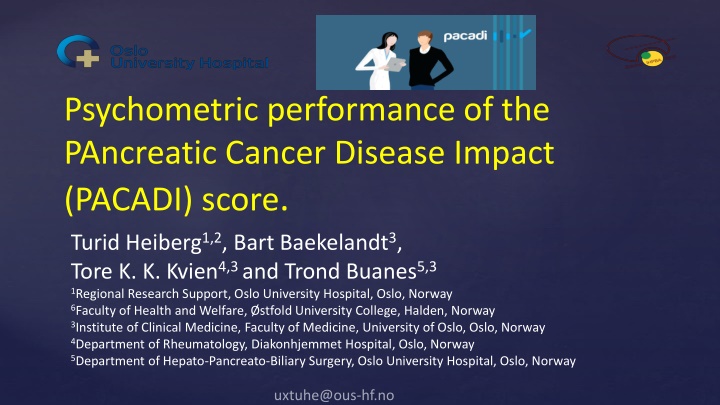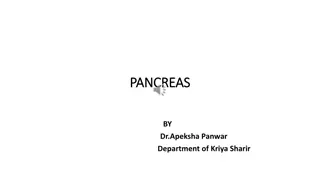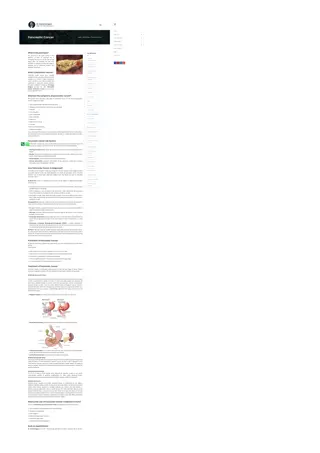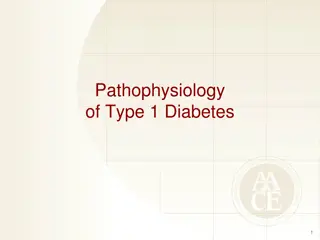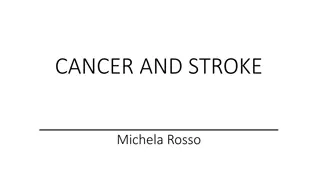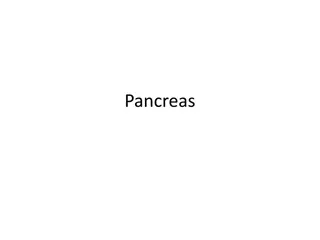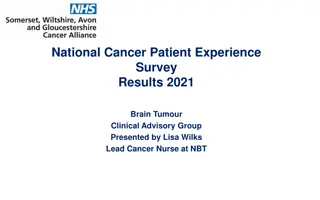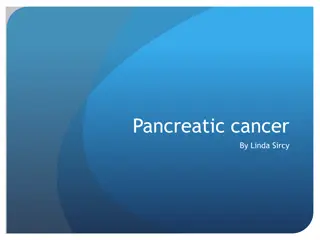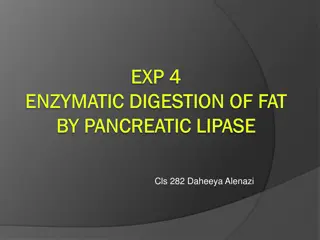Psychometric Performance of PACADI Score in Pancreatic Cancer Patients
This study at IHPBA 2018 evaluated the psychometric performance of the Pancreatic Cancer Disease Impact (PACADI) score in patients with suspected pancreatic cancer. The research included 363 patients and assessed various aspects such as discriminative validity, test-retest reliability, and predictive validity of mortality. Results showed baseline characteristics, group differences, and discriminatory power among different lesion types.
Download Presentation

Please find below an Image/Link to download the presentation.
The content on the website is provided AS IS for your information and personal use only. It may not be sold, licensed, or shared on other websites without obtaining consent from the author.If you encounter any issues during the download, it is possible that the publisher has removed the file from their server.
You are allowed to download the files provided on this website for personal or commercial use, subject to the condition that they are used lawfully. All files are the property of their respective owners.
The content on the website is provided AS IS for your information and personal use only. It may not be sold, licensed, or shared on other websites without obtaining consent from the author.
E N D
Presentation Transcript
IHPBA 2018 Psychometric performance of the PAncreatic Cancer Disease Impact (PACADI) score. Turid Heiberg1,2, Bart Baekelandt3, Tore K. K. Kvien4,3 and Trond Buanes5,3 1Regional Research Support, Oslo University Hospital, Oslo, Norway 6Faculty of Health and Welfare, stfold University College, Halden, Norway 3Institute of Clinical Medicine, Faculty of Medicine, University of Oslo, Oslo, Norway 4Department of Rheumatology, Diakonhjemmet Hospital, Oslo, Norway 5Department of Hepato-Pancreato-Biliary Surgery, Oslo University Hospital, Oslo, Norway
IHPBA 2018 Disclosure Statement of Financial Interest Turid Heiberg: Nothing to disclose Bart Baekelandt: Nothing to disclose Tore K. Kvien has received fees for speaking and/or consulting fromAbbVie, Biogen, BMS, Boehringer Ingelheim, Celgene, Celltrion, Eli Lilly, Epirus, Hospira, Merck-Serono, MSD, Mundipharma, Novartis, Oktal, Orion Pharma, Hospira/Pfizer, Roche, Samsung, Sandoz and UCB and received research funding to Diakonhjemmet Hospital from AbbVie, BMS, MSD, Pfizer, Roche and UCB. Trond Buanes: Nothing to disclose uxtuhe@ous-hf.no
IHPBA 2018 Introduction. Access to patient reported outcome measures that are valid, brief, disease specific, and emphasizing the patient perspective is limited. The PACADI score is suggested for use. (1) 1. Heiberg T et al. Development and preliminary validation of the pancreatic cancer disease impact score. Support Care Cancer. 2013;21(6):1677-84. The purpose of this study was to perform a full psychometric testing of the PACADI score. uxtuhe@ous-hf.no
IHPBA 2018 Methods. Patients (n=363) with suspected pancreatic cancer (PC) were included. The PACADI score has eight dimensions measured on (NRS) 0-10. EQ-5D and ESAS were also completed. Data were collected at baseline and after 1, 2, 3, 6, 9 and 12 months. uxtuhe@ous-hf.no Analyses. We examined Discriminative validity between diagnostic groups Correlations between instruments (concurrent validity) ICC (test-retest reliability) Internal consistency of dimensions in PACADI score and EQ-5D Longitudinal examinations, SRM (responsiveness) Predictive validity of mortality.
IHPBA 2018 Results I. Mean (SD) baseline characteristics /group differences. Discriminatory power cancer n=213 Pancreatic Other malignant lesions n=104 Non malignant lesion n=46 65.8 (11.3) 39.0 3.0 (2.3) -0.66 (-0.33) 3.2 (2.8) p-value* Age Females (%) PACADI score EQ-5D ESAS sense of well-being 67.5 (10.4) 49.3 3.4 (2.1) -0.60 (-0.30) 3.7 (2.9) 65.8 (11.1) 38.9 2.8 (2.0) -0.70 (-0.26) 3.1 (2.7) 0.35 0.15 0.045 0.045 0.17 *Chi-square or ANOVA uxtuhe@ous-hf.no
IHPBA 2018 Results II. Patients with pancreatic cancer PACADI score correlated strongly with EQ-5D and ESAS (064-0.66, p<0.001). PACADI score showed high test retest reliability (ICC 0.84, p<0.05) PACADI score showed Cronbach s alpha range 0.81-0.85 across all visits. PACADI score showed significant differences over time at 3, 6, 9 and 12 months. PACADI score showed SRM 0.80 and EQ-5D -0.59 for improvement (2-3 months). PACADI score showed predictive validity (p=0.02) for mortality during 12 months. Predictive validity Pancreatic Cancer n=213 Other Malignant Lesions n=109 /HR 0.05 -0.78 0.02 Non Malignant Lesions n=41 (COX regression) PACADI score EQ-5D ESAS sense of well-being /HR 0.08 -0.03 0.008 p-value p=0.02 P=0.17 P=0.78 p-value p=0.47 p=0.10 p=0.73 /HR 0.24 -2.19 -0.04 p-value p=0.18 p=0.18 p=0.79
IHPBA 2018 Conclusion. PACADI, is a brief disease specific patient derived PROM tool, that showed satisfactory psychometric performance, supporting its use in clinical practice and intervention trials. http://www.pacadi.com/en/index.html uxtuhe@ous-hf.no
